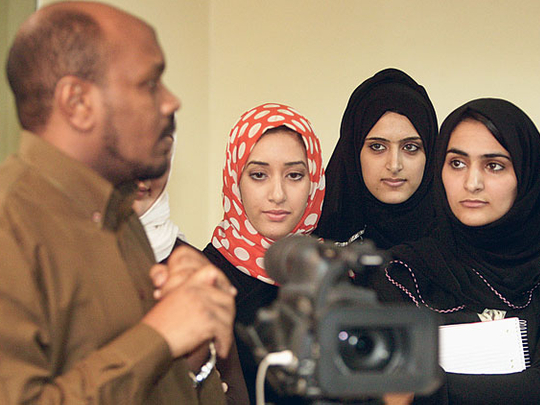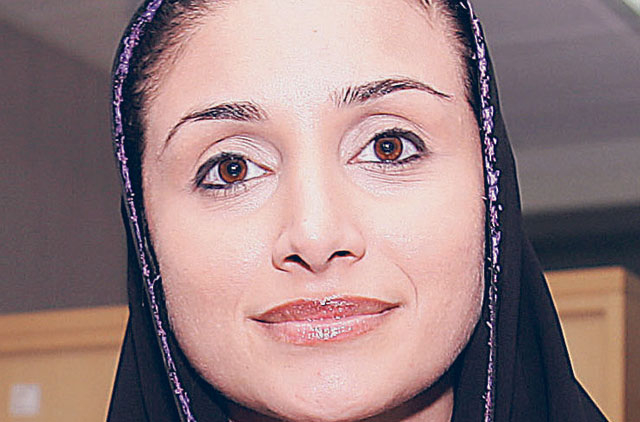
Media students are not skilled enough to meet the current needs of the job market said the Deputy CEO of Dubai Media Incorporated (DMI) at Michigan State University Dubai (MSU) lecture last week.
Najla Al Awadi stressed the need for a stronger media curriculum to be developed at universities in the UAE and the region, to ensure media graduates are adequately prepared for the challenges of the market.
"There are plenty of talented people in the market but the challenge is graduates don't have enough skills to meet our direct needs," said Najla. "If we bring them on we actually have to train them."
Recommendations
Najla, who is also a member of the UAE Parliament, heads the Dubai One television channel. She was invited to speak to students during MSU's first of a series of distinguished lectures.
She suggested that the first step towards more productive media programmes would be for universities to build official collaborations with reputed media groups in the region to establish joint programmes that reflect market demand.
"They [graduates] have the media and the arts mindset but at the same time they don't know how to come out of school and direct," she said. "I shouldn't have to train you how to direct."
She said teaching students how to write for television as well as teaching cultural sensitivity are very important areas that need to be worked upon.
"If they graduate from a purely Western curriculum, they might not necessarily be attuned to the cultural norms of the society in which they are working," Najla added.
Research needed
Najla said the growing UAE and Middle Eastern media industries are also short on qualified researchers, who essentially find out what audiences want to watch.
"We seriously need to emphasise the role of institutionalised research to find out more about the needs of Arab societies and how to create successful media institutions to fit them," she said.
She mentioned that market research is currently conducted by a handful of specialised companies who collect random samples of the target audience through surveys and random phone interviews.
However, Najla mentioned an initiative in the pipeline and still under study, known as the people-metre-project. "[It consists of] installing metres in homes to see what you are watching and when," she explained.
Exporting media content
"You need to understand that when we [DMI] look at media we also like to think of the big picture," Najla said.
"It's not just about putting content on air. It's also about creating an industry."
Najla said DMI, which is funded by the Dubai Government, functions in many ways like the BBC.
She said DMI and Dubai One aspire to create a thriving media industry that allows for job creation for both Emiratis and expatriates.
She said talented and skilled graduates can help export media content.
"Right now we are seriously in the business of importing media content, but are looking to break that and become exporters of it," said Najla.
She used the Freej cartoon series, which aired on Dubai One last year with English subtitles, to illustrate her point of original content. According to viewer ratings, the programme "did surprisingly well with the expatriate community in the UAE".



